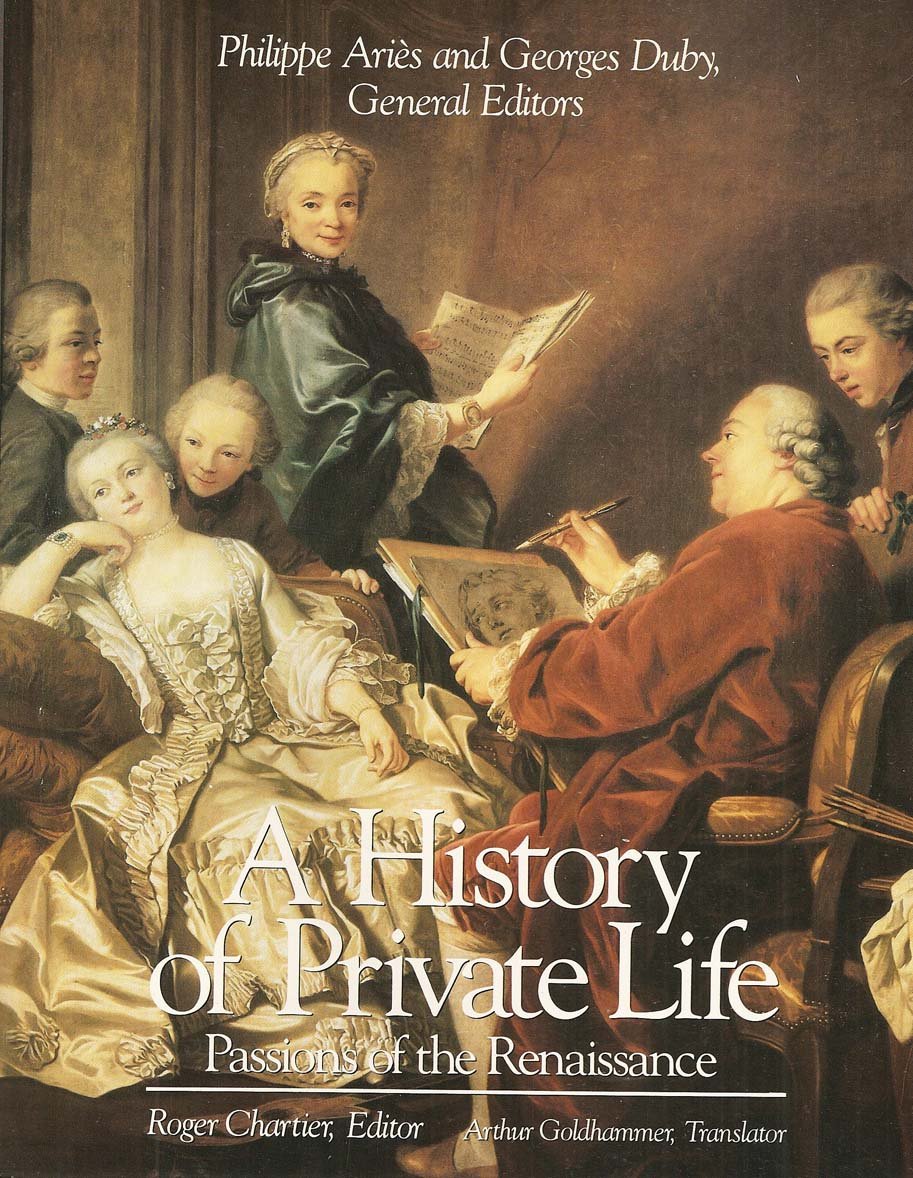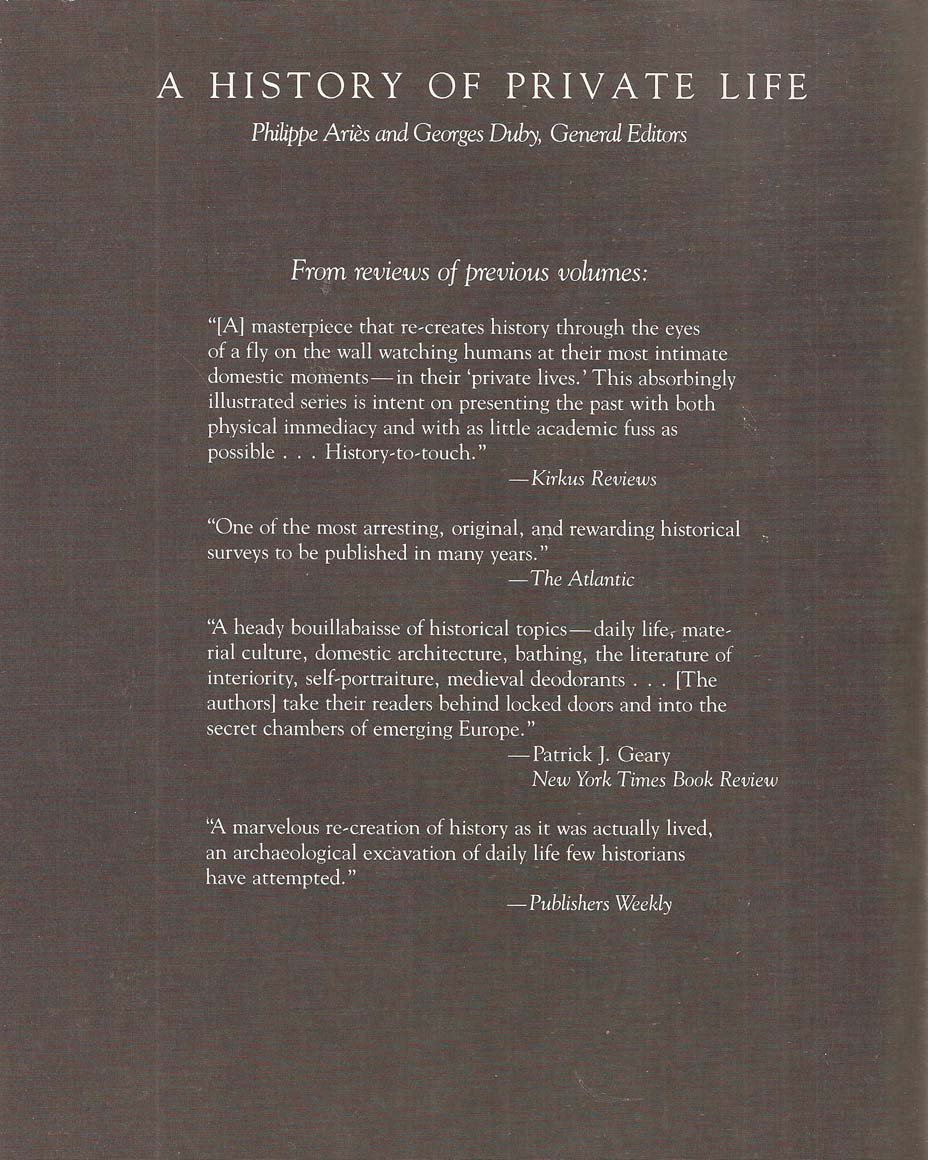


A History of Private Life, Volume III, Passions of the Renaissance
J**P
Five Stars
good shape, good service, good value
M**T
Incredible series of timeless history books
I was introduced to this series with volume III and I absolutely loved it as a student and was compelled to purchase the rest. They are nothing like a typical history textbook. So much history is obsessed with politics and war that reading about the history of daily life is a breath of fresh air. Each volume is organized as a collection of nicely illustrated and subdivided essays, each written by one of many eminent French historians.Each essay explores a different topic related to everyday life and the essays are organized into several main themes. Some of the topics are a bit mundane and others are truly fascinating--depending on one's personal taste. My favorite part of this volume is the section that discusses the impact of printing and writing on European culture during this period--far beyond just the obvious. The essay about changing views on childhood was also memorable. There are also quite a few spicy morsels sprinkled throughout these books as well. I learned more about the history of certain aspects of European private life than I expected.Even though these books were written in the 1980s, they will remain relevant, historically useful, and accurate for decades to come. Plus, look at the price of these books used! Amazing, considering how good they are.
H**Y
Excelent book,
This is an excelent book, the editors do an outstanding job. I highly recommend it for anyone studying history
W**E
Would like to see more comparison to England and other European ...
Emphasizes life in France. Would like to see more comparison to England and other European countries.
S**R
The "Early Modern" Period
And now volume three. My reviews of the first two books in this series have garnered a fat total of 0 votes, positive or negative, so I'll make this review brief.This book charts the transistion from the middle ages to the beginnings of the modern period. In the introduction by Aries (who's scholarship is the inspiration for this project), he makes a claim that this time period deserves to be treated as a seperate "early modern" period. It's a noble thought, but the book reads more like one would expect: a lot of the middle ages and a little of modernity, but a lack of the coherence that one sees in volumes I, II and IV.The authors are mostly concerned with discussing two (seemingly)contradictory trends: the attempt by families to develop "private space" and the attempt by the state to intrude on that private space. Chapter two deals mostly with the first statement, chapter three with the second.You have to keep an open mind with the Annales school of scholarship. The writers favor open ended generalizations to conclusive statements and are just as interested in providing ideas for further study as they are in answering questions.
O**K
A Good Idea ...but drowned in florid speach.
This book is a good idea. But there is room for litterature that can tell the same in a more lively way with far fewer words. ...or can tell four time as much with the same number of pages. - The language of most of the authors is such that you wonder WHY they have chosen to say what they attempt to tell in such flowery ways. After a paragraph it's hard to remember "What did he try to tell me now." It's easier to think: "Yes. I can see that you have learnt a hole lot of words, and adjectives in particular." - I have found litterature about the same topic, put in a different language that manage to do this far better. In fact I've found public reports that with regards to the ability to convey a thought is far more readable.
Trustpilot
2 weeks ago
3 days ago